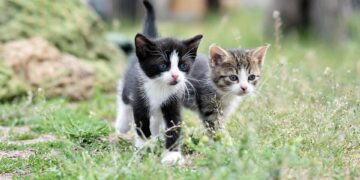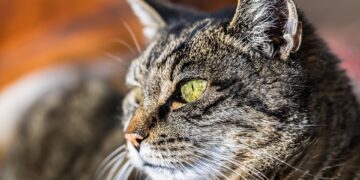Ultimate Guide to Finding the Best Cat Food for Sensitive Stomachs and Diarrhea: Improving Your Feline Friend’s Digestive Health
Cats are notorious for being picky eaters, but when your feline friend has a sensitive stomach or is suffering from diarrhea, finding the right cat food becomes crucial. Digestive issues in cats can be caused by a variety of factors, including food allergies, intolerances, or even underlying health conditions. In this ultimate guide, we will explore how to choose the best cat food for sensitive stomachs and diarrhea, and provide tips for improving your cat’s digestive health.
Understanding Your Cat’s Digestive System
Before diving into the best cat food options for sensitive stomachs and diarrhea, it’s important to understand how your cat’s digestive system works. Cats are obligate carnivores, meaning they require a diet high in animal-based proteins to thrive. Their digestive systems are designed to process meat efficiently, with short digestive tracts and acidic stomachs that can handle raw meat and bones.
However, some cats have sensitivities to certain ingredients or may have underlying health issues that affect their digestion. Common signs of digestive issues in cats include vomiting, diarrhea, constipation, and bloating. If your cat is experiencing any of these symptoms, it’s essential to consult with your veterinarian to rule out any serious health concerns.
Choosing the Right Cat Food for Sensitive Stomachs and Diarrhea
When it comes to choosing the best cat food for cats with sensitive stomachs and diarrhea, there are a few key factors to consider:
1. Limited Ingredient Diet
Many cats with sensitive stomachs or food allergies benefit from a limited ingredient diet. These diets contain a minimal number of ingredients, making it easier to identify and eliminate any potential triggers. Look for cat foods that are free of common allergens such as grains, dairy, and artificial additives.
2. High-Quality Protein Sources
Protein is essential for your cat’s overall health and wellbeing. Look for cat foods that list a high-quality animal protein source as the first ingredient, such as chicken, turkey, or fish. Avoid cat foods that contain by-products or fillers, as these can be difficult for cats to digest.
3. Digestible Carbohydrates
While cats are obligate carnivores, they can still benefit from small amounts of digestible carbohydrates in their diet. Look for cat foods that contain sources of carbohydrates such as sweet potatoes, peas, or brown rice. Avoid foods that contain high levels of corn, wheat, or soy, as these can be difficult for cats to digest.
4. Probiotics and Digestive Enzymes
Probiotics and digestive enzymes can help support your cat’s digestive health by promoting the growth of beneficial bacteria in the gut. Look for cat foods that contain added probiotics or digestive enzymes to help improve your cat’s digestion and reduce gastrointestinal issues.
Tips for Improving Your Cat’s Digestive Health
In addition to choosing the right cat food for your feline friend, there are a few other tips you can follow to improve your cat’s digestive health:
1. Slowly Transition to a New Diet
When switching your cat to a new food, it’s important to do so gradually to avoid digestive upset. Start by mixing a small amount of the new food with your cat’s current food and gradually increase the ratio over a period of 7-10 days.
2. Provide Plenty of Fresh Water
Proper hydration is essential for your cat’s digestive health. Make sure your cat has access to fresh, clean water at all times, and consider adding a water fountain to encourage drinking.
3. Monitor Your Cat’s Eating Habits
Keep an eye on your cat’s eating habits and monitor for any changes in appetite, weight loss, or vomiting. If you notice any concerning symptoms, consult with your veterinarian for further evaluation.
4. Regular Vet Check-Ups
Regular veterinary check-ups are essential for maintaining your cat’s overall health and wellbeing. Your veterinarian can help identify any underlying health issues that may be contributing to your cat’s digestive problems and recommend appropriate treatment options.
Conclusion
Choosing the best cat food for cats with sensitive stomachs and diarrhea can be a challenging task, but with the right information and guidance, you can help improve your feline friend’s digestive health. By selecting a high-quality cat food that meets your cat’s dietary needs and following the tips outlined in this guide, you can help alleviate your cat’s digestive issues and ensure they live a happy and healthy life.
Remember to consult with your veterinarian before making any changes to your cat’s diet or if you notice any concerning symptoms. With proper care and attention, you can help your cat thrive and enjoy a happy, healthy life.











































